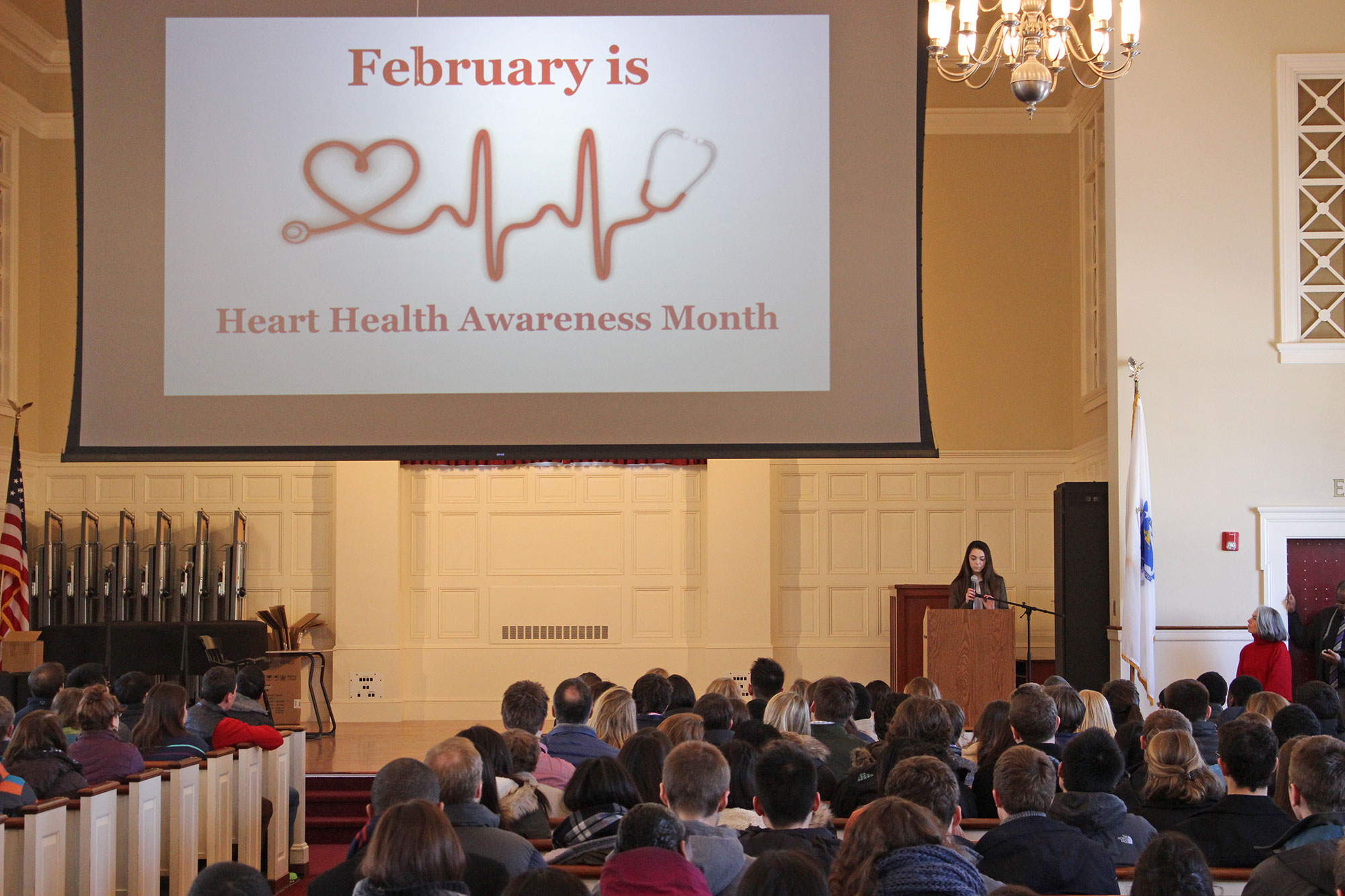
On January 20, the text alerts started pouring into Marcus Ware’s cell phone.
There was a shooter at Brigham and Women’s Hospital in Boston. He had entered the Carl J. and Ruth Shapiro Cardiovascular Center on the second floor. Shots had been fired at a doctor there. The gunman had turned the gun on himself. Police were at the hospital and had secured the scene.
The news was devastating, and incredibly personal for Dr. Ware, he explained to Williston Northampton School students and faculty during an assembly on February 18.
“You see, I paused for a bit because I am a patient at Brigham and Women’s and have been so for the past 10 years,” he said. “Given that I’ve had high familiarity with the hospital due to the number of visits and procedures that I have had done over the years, these text alerts made me stop in my tracks and pray that all was okay.”
Dr. Ware, a former Williston faculty member, had returned to campus to speak about his own experiences for Heart Health Month. The event was organized by Jordan Sansone ’17, her advisor Ann Pickrell, and Assistant Director of Athletics and Head Athletic Trainer Melissa Brousseau. Later that afternoon, Ms. Sansone also offered a screenings and a confidential six-point questionnaire for students in the Athletic Center during a girls basketball game.
“Lots of students, some teachers and even a few parents came over to fill out the questionnaires or further inquire about the initiative,” Ms. Sansone noted later. She added that her own experience with cardiac conditions prompted her to help raise awareness, particularly with student athletes.
“I consider my own luck as a chance to prevent others from what too many families have to endure due to sudden cardiac arrest,” she noted. “I hope Heart Health Awareness month and this event brought light to the reality of cardiac conditions and encouraged students to put their safety first.”

During his presentation, Dr. Ware explained he has what’s known as third-degree atrioventricular block, which means that an electrical impulse in the atrium of his heart does not make it to the ventricles, causing his heart to pump blood at a much slower rate than it should.
Dr. Ware was diagnosed with the condition at age 16, but waited another six years before finally deciding to get the recommended pacemaker implant.
“When I heard the doctor back in ‘98 who told me I needed a pacemaker either now or later, I took later and ran away,” Dr. Ware said. “Not so smart, I know. But who at the age of 16 wants to hear that they need a pacemaker to live?”
By his early 20s, though, Dr. Ware was experiencing symptoms such as excessive weight gain and shortness of breath. At Brigham, a doctor told him he needed a pacemaker immediately or he could drop dead.
“That’s all it took. I said sign me up,” Dr. Ware said.
When he went into congestive heart failure seven years later, Dr. Ware returned to the hospital and to the Shapiro Cardiovascular Center, where Dr. Michael Davidson, director of Endovascular Cardiac Surgery, outfitted him with a biventricular pacemaker.
“You see I need to tell you about Brigham and Women’s because it was Dr. Davidson who was shot and killed that day at the hospital,” Dr. Ware said. “It broke my heart, because that day, I didn’t realize that I lost not only my doctor but my friend.”
Dr. Ware urged students to listen to information about heart health, talk to their families about their risk factors, and to “always pay attention to your heart.” He noted that, with the pacemaker, his quality of life has significantly improved.
“Because like Dr. Davidson told me, ‘Marcus, you know your body, always pay attention to what it’s telling you.’” Dr. Ware said. “I am forever thankful to him.”

